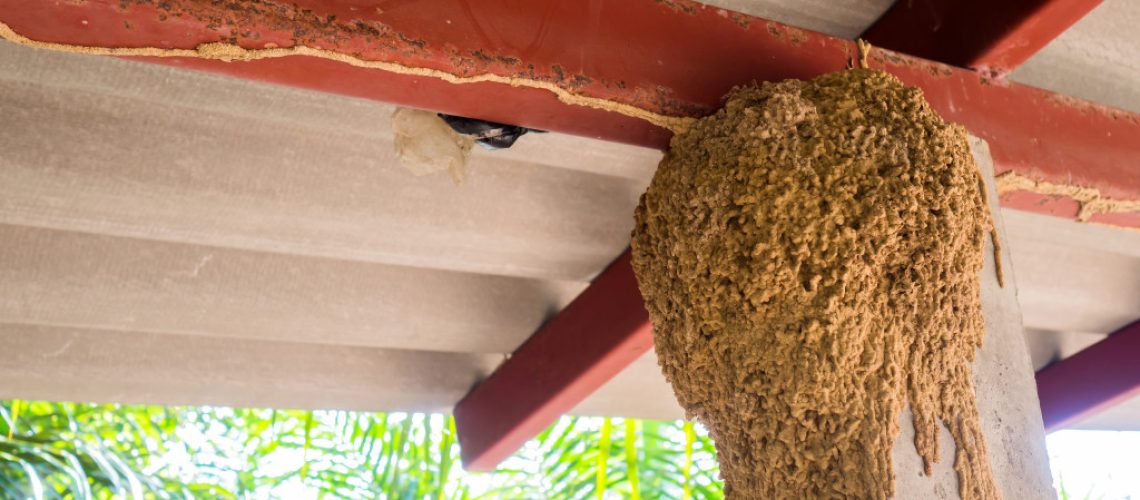There is nothing like living in an area filled with greenery and trees. It allows us to breathe fresh air regularly, and it feels like we’re living in a more serene environment. There is no denying that living in the woods or near the mountains can be a privilege and a luxury, but it can also come with plenty of safety hazards—the chief of which is the threat of wild animals like bears, deer, lions, foxes, alligators, moose, wolves, wild coyotes, and many others types of fauna that are native to North America.
Living in the woods or near the mountains can be a blessing, but being among its wildlife can be dangerous. Here are some tips for protecting your property, and your family, from wild animals.
Bolster your exteriors
If your neighborhood is the type where the houses don’t have fences, then your first line of defense is your exteriors. Make sure to have your garage door maintained and repaired at least annually because if it’s not properly maintained, then it’s always the first to go. The garage is the most tempting part of the house to vandals, and stronger and bigger animals can always make their way to your house through it if your garage is not durable enough.
In the past few decades, there has been a pattern of wild carnivores attacking humans in urban areas, so you need to do all that you can to strengthen your property’s exteriors. Forego the floor-to-ceiling windows, or if you must, make sure the materials are strong enough to stop a bison from running through it.
Seal any openings
Big animals are not the only thing you need to be wary of; you also need to watch out for smaller animals like squirrels, bats, and others. Bats, in particular, are a key source of various types of human viruses, so you want to do all that you can to keep steer clear of these animals.
Here are some tips for efficient inspection and sealing of any cracks in your home or property:
- Check every room, especially the attic, for any types of openings.
- Before you do some sealing, make sure that there are no animals trapped in any of these rooms. In this case, a thorough spring cleaning might be in order, especially if you haven’t done so in a few years.
- Cover and cap chimneys and cover any open vents using wire mesh.
- Keep your doors and garages closed at all times, especially during seasons when these animals are more likely to make an appearance.
Install motion-sensor lights
Consider investing in smart motion-sensor lights. It will help illuminate your surroundings, so you don’t mistakenly walk into a wild animal’s path while trying to drink water in the middle of the night, and it will also help to scare and startle them away should they find themselves inside your house.
Maintain your landscaping

Remember that animals, especially smaller ones, have more places to hide and nest in if your trees and shrubbery are unkempt and messy. Make sure to keep your tree branches properly trimmed all year round, especially the branches that are overhanging your roof. Don’t skip your regular pruning and get rid of dead leaves other dried plants. Consider hiring a gardener that can help you keep your garden as well-maintained as possible.
Educate yourself about the wild animals in your area
If you know that wildlife is something that you would have to contend with in this residential or commercial property, then you need to take the initiative to learn more about the animals that are native to the area. Here are some things you need to learn about them:
- What makes them feel threatened
- The seasons of the year when they are most active and if they ever hibernate
- If they are ever tempted to attack humans, and if not, what triggers them to do so
- What you can do in case of an emergency—when you finally see yourself face to face with a wild animal, and there’s nowhere to go.
Knowing basic information about the wildlife in your area will help you coexist peacefully with them and can help you protect not just your home but also your family.
Remember they were here first
And last but not least, remember that they were in the area first. If you can respect them and not poach them needlessly or hunt them down, then maybe you can enjoy living in the area without them bothering you. Just put the necessary safeguards, leave them alone, and they might leave you alone too. Stay safe out there!

